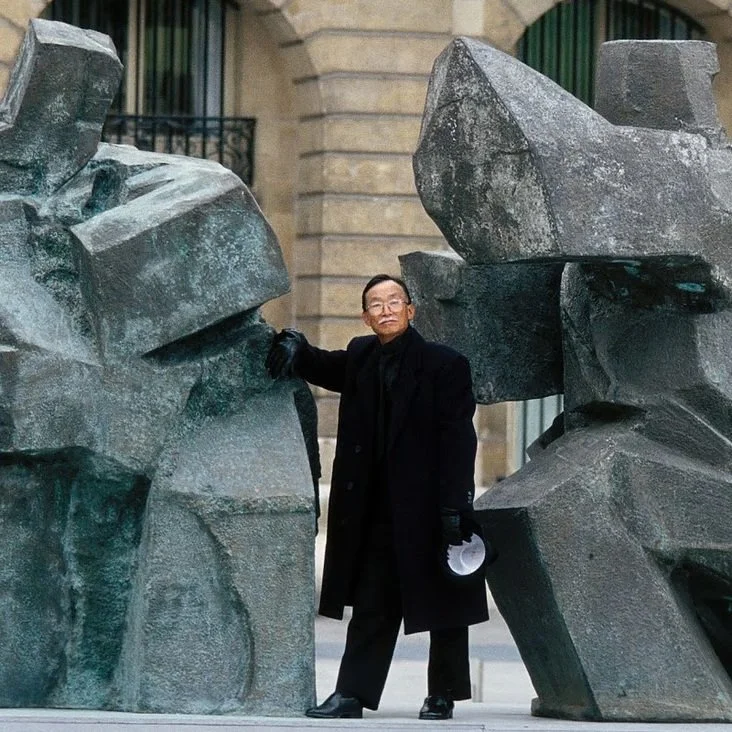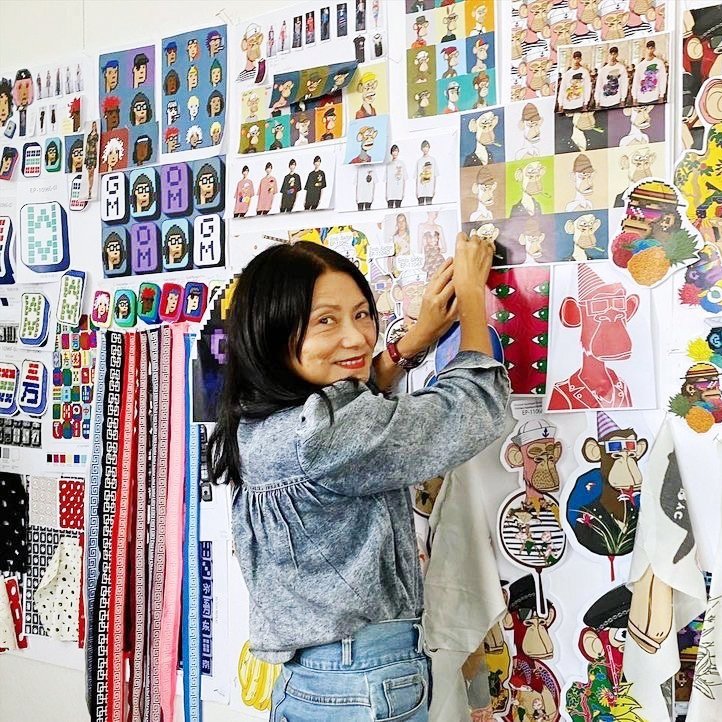Battling Two Pandemics: the Virus and Racism
Interviewed by Deborah Lau-Yu
A Conversation with Frontline Doctor,
Dr. Jessica Liu, MD MSc FRCPC
We are over 430 days into the pandemic in Canada, when counting from the day Prime Minister Justin Trudeau closed the borders and emergencies order took place in March of 2020. While many of us have spent the time safely at home and socially distanced from others (a luxury when compared to many denser places in the world), there has been massive frontline team that heroically serviced the entire population across essential industries. Healthcare is, of course, at the forefront of this battle. The work and lives of all hospital staff have been impacted by Covid-19, especially as numbers climbed during three waves, and provinces were forced to support one another.
In most news reports, we hear the ICU’s mentioned and used as a focal point in the coverage of the pandemic, and some mention of emergency rooms. But one department, a key player and stakeholder in pandemic management, has been left out of the spotlight. We invited General Internal Medicine doctor, Dr. Jessica Liu, to give us an inside view on her role and her hospital’s role in crisis management this past year, and a glimpse of what she sees as an Asian-Canadian on the frontlines.
Meet Dr. Jessica Liu…
Jessica is an internal medicine physician at Toronto General Hospital and an Assistant Professor of Medicine at University of Toronto. Her practice focusses on patients with highly complex conditions, often during critical and intense periods of their care. She is also fortunate to teach resident physicians and medical students, and maintain an active role in medical research, with a focus on healthcare quality improvement and innovation. During this pandemic Jessica also accepted a leadership position as the Site Director of Internal Medicine for Toronto General Hospital. In addition to treating patients with COVID-19, this role has given her “a unique opportunity to lead and manage the hospital’s COVID-19 inpatient ward.”
Doctors in the community don’t often get to share their personal story and experiences, and we asked Jessica to tell us a bit about her background and passion. “I live in downtown Toronto with my husband, Matthew, a partner at McCarthy Tétrault, and our identical twin daughters, Emerson and Isabella, who turn five this summer. Although Toronto is now home, I grew up in a large family in Waterloo, Ontario.” Her parents immigrated to Canada at a young age — in their 20s: her mother as a nurse from the Philippines, and her Australian-Chinese father was a nephrologist who founded the nephrology clinic at St. Mary’s Hospital in Waterloo, which has now been generously named in his memory. Jessica has three equally gifted sisters who also share an interest in health: one is a pharmaceutical healthcare consultant, one is an endocrinologist and the other is an infectious diseases specialist. Jessica fondly remembers, “there was a lot of medical talk at the dinner table growing up, which definitely inspired our career choices.”
What has the last 365 days looked like for you?
“This past year has been exhausting for everyone. Looking back, the early months of the pandemic were the most uncertain — there was no vaccine, protective equipment was in short supply, and there were so many open questions surrounding the disease itself. Some hospitals around the world were hit early and very hard – the reports were alarming for both medical professionals and the general public. It was a Wednesday in mid-March 2020 when I was asked to become the first doctor on the first COVID-19 team at my hospital. We were all concerned, but our patients and colleagues needed us. Every one of my colleagues immediately volunteered to help. To limit exposure to our families, some of us leased temporary apartments close to work so that we could isolate. Although I rented an apartment for several months, I found myself using it only to shower and change after my shifts – amid all the uncertainty I just couldn’t stay away from my little girls. Another colleague divided his apartment in half with a line of masking tape – one side for him and the other for his fiancé. Lots of other took up “residence” in their basements or garages. Thankfully, we know a lot more about transmission now but I am still extremely cautious – and it is mentally and emotionally exhausting trying to maintain constant levels of hypervigilance over months and months.
I remember patients being terrified – only made worse be being lonely and isolated. Of course it surely didn’t help that all of the doctors, nurses and other medical staff were full masks, gowns and face shields. Early in the pandemic I started printing hand-outs for patients with our names and pictures – it seems like a small thing to do, but somehow created a better sense of connection.
I was vaccinated in January, and that changed things so much in terms of my worries for my family. After that, we were able to fall into a somewhat nice, if chaotic routine. I work from home as much as I can when I am not needed at the hospital. When COVID-19 cases were lower, I took time to take a summer break with my family. The girls went go back to school in the fall and although they are back to virtual learning now, they are remarkably adaptable and they haven’t missed a beat. I’ve also really felt lucky to have time at home with my family and am grateful we have all stayed healthy.
The challenges continue. A few months ago an opportunity for a leadership position presented itself, and so I took it – and now, among other things, I lead the COVID-19 ward operations for my hospital. I pretty much think about COVID-19 constantly – especially right now since we are in the middle of the third wave – which is the worst wave yet. Patients are younger and sicker than in previous waves. Many are essential workers. It can be tiring but I have to say, it helps to be doing something so meaningful and be working with a team of amazing colleagues where we are needed most – in many ways, it is easier than staying at home worrying.”
Is GIM the unsung hero in this pandemic?
Sponsored by PIaget
“My internal medicine colleagues, along with those in the emergency room and intensive care unit, have really led the hospital’s response to COVID-19 over the last 15 months. We rapidly developed protocols based on early case reports out of Wuhan, and organized a specialized new COVID-19 ward within a matter of days. We were literally digesting data and research about a novel and deadly disease as patients were arriving at the door. Since the beginning of the pandemic, it’s been mostly a group of about 25 internal medicine physicians monitoring latest treatments for COVID-19, adapting to hospital volumes, and managing ill patients with COVID-19.
I’m really proud of the internal medicine team for stepping up and leading this at our hospital. While every single person in healthcare has been working incredibly hard, I do think that internal medicine has been more “under the radar” during this pandemic. It’s not common knowledge that internal medicine has taken care of 70% of all inpatients with COVID-19 at our hospital. If you are too sick with COVID-19 to go home, but aren’t so sick that you need to be on a ventilator or confined to the ICU, odds are that you were being cared for by an internal medicine physician.
That said, I wouldn’t call us unsung heroes, because it is our job to take care of patients with complicated, multi-organ diseases. Internal medicine specialists are comfortable with caring for sick patients, with diagnostic uncertainty, and quickly adapt to change. In many ways, COVID-19 is a perfect example of a disease designed for an internal medicine specialist. And we continue to adapt. We have expanded significantly our scope to take care of critically ill patients. We’ve done this out of necessity to offload our ICU colleagues who are at very real risk of running out of beds. Multiply this by all internal medicine wards across the province and I am hopeful we will continue to have ICU space for those who need. All this to say that I am proud of my Internal Medicine colleagues for doing this, week after week, for the last 15 months – and we will continue to do so for as long as we are needed.
If you want to talk about unsung heros, I think of the delivery drivers, grocery store staff, essential factory workers and many others who have been on a newly discovered front-line — all of whom have put themselves at risk so that our economy maintains its pulse and so many of us can work safely from home. I also worry for the retail workers, restaurants and small businesses that have suffered such hardship during this time. I know that brighter days are ahead, and all of us need to rally to support those hardest hit.”
How do you feel about the Anti-Asian Racism that has heightened since the beginning of this pandemic?
“I’m really saddened by it of course. Frankly, I am saddened by racism or discrimination in any form. I also recognize that I have a lot of privilege in my own education, career and life …and I realize how this allows people to be insulated from what is a reality for many people. Becoming a mother has certainly sharpened by focus on these issues, especially since my children are half-Asian and just starting to ask questions about skin colour, equality and race. My career gives me a fascinating lens: every day, I see people at their very best or their very worst. It’s amazing how being gravely ill or experiencing great loss is an equalizer of sorts. No one seems to use their last breaths to talk about our human differences — people talk most of roads not taken, things left unsaid, and missed opportunities.”
As an Asian-Canadian female doctor on the front lines battling the virus in the hospital, have you encountered any hate or witnessed any incidents in your circle of friends and colleagues?
“Some of my physician colleagues who are more active in media have told me that they have gotten a lot of hateful comments on social media that target their race. It was uncomfortable to hear about their experiences. For me, however, I have not personally experienced anything so overt. I think privilege, no matter what your cultural background, can make us somewhat naïve of the extent of such issues. I probably have not been as in tune to more subtle displays of racism or stereotyping, and imagine that I have brushed small incidents off as well-meaning when I could have spoken up. Perhaps that’s a regret. I am learning that this is something I need to work on, to recognize and speak up more when such things happen, if not for myself but on behalf of others who can’t speak up for themselves. We need to be a voice to stand up against racism and discrimination.”
What is one area you would like to see receive more funding in GIM and what are the needs of the team that are unheard in the media?
“There’s no doubt that the Division of Internal Medicine at UHN is already an exceptional facility, and has the potential to be among the world’s Leading Centres of Excellence in patient care, healthcare innovation research, and education. But, compared with other programs, our Division is less well funded for number of patients we serve, especially given the complexity of their care. We have an amazing team of physicians, nurses and allied health partners like physiotherapists and social workers. Everything they do is with great expertise, commitment and heart. The response to COVID-19 is just one example of their hard work, resourcefulness and resilience.
But we could do so much more. Additional funding for equipment and services, such as bedside ultrasound machines and virtual platforms, would allow us to expedite and improve care for patients. These tools also shorten hospital stays and facilitate better transitions to home and follow-up care. Similarly with research and innovation – although great strides have been made, there remains great opportunity in healthcare quality improvement and innovation and health equity. Additional support for clinical and research training scholarships would give us the opportunity to build innovative programs in clinical care, research and education—and ultimately to improve patient care.”
Do you have anything to share with the community at this time to help families get through the remainder of the pandemic?
“Brighter days are ahead. We are slowly but surely getting vaccinated, and the vaccines work. I expect that 2022 will look vastly better than 2021. I also think some good can come from this experience – so many things have accelerated for the good, like flexibility in work, innovation in schooling, and a refocus on public health. I have also seen a remarkable coming together for the common good – whether by wearing a mask, lawn signs thanking essential workers, or checking on our neighbours. We have a lot to be thankful for – and a very bright future.”
On behalf of Fête Chinoise, we extend a big thank you to Jessica, her team, and all the hospital teams across the country for your service and care. We look forward to a brighter future post-pandemic, where we can come together as a community in person. For anyone reading who wants to make a donation to the General Internal Medicine Program at UHN, please send us a message at info@fetechinoise.ca and we will connect you.
Sponsored by Ferris Wheel Press.



















